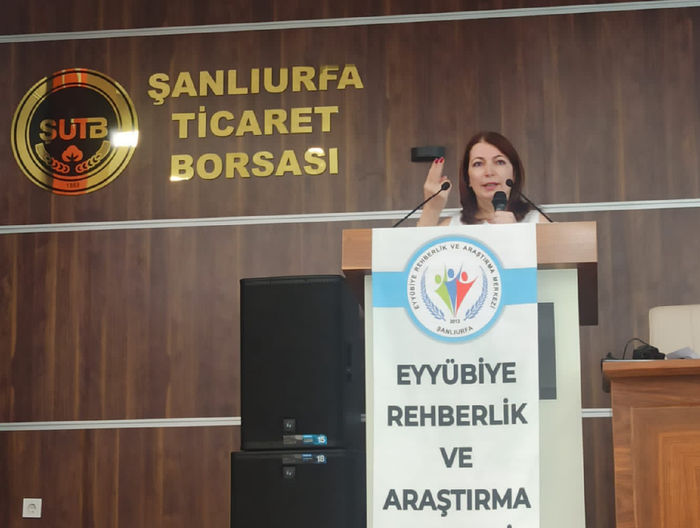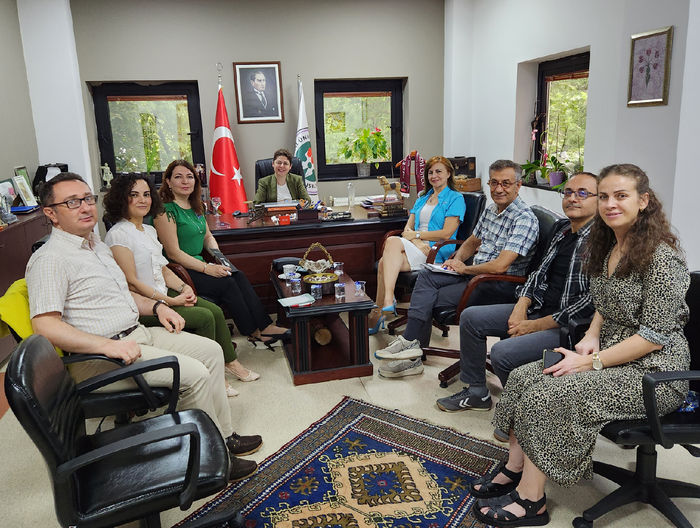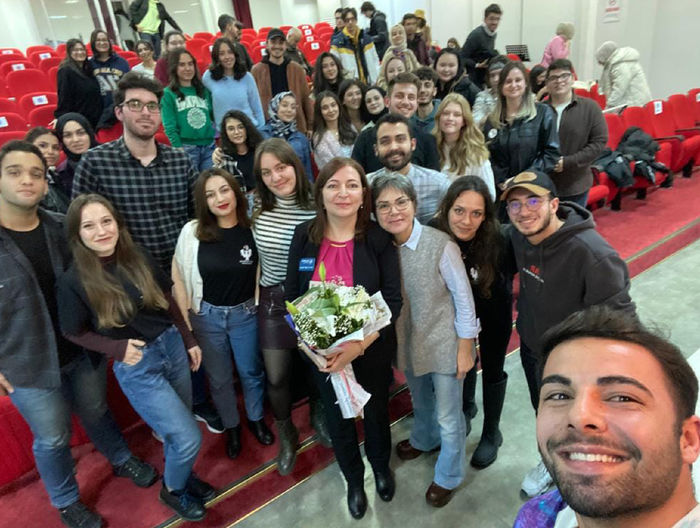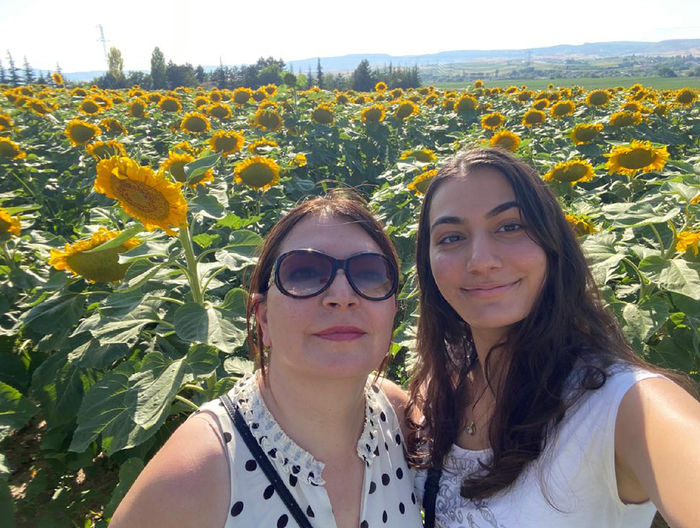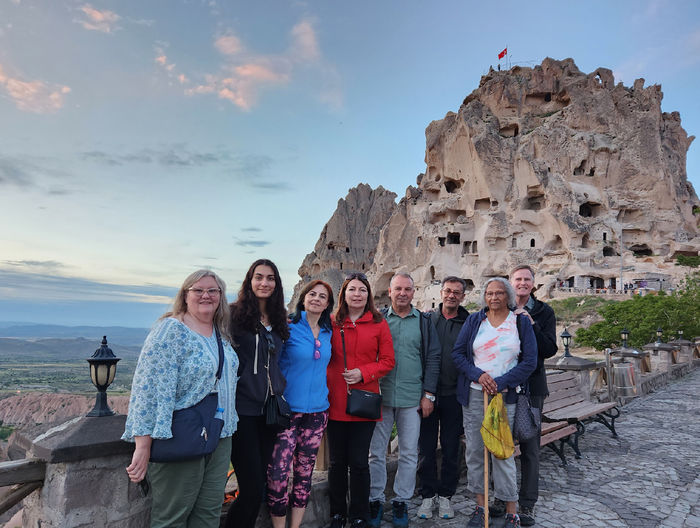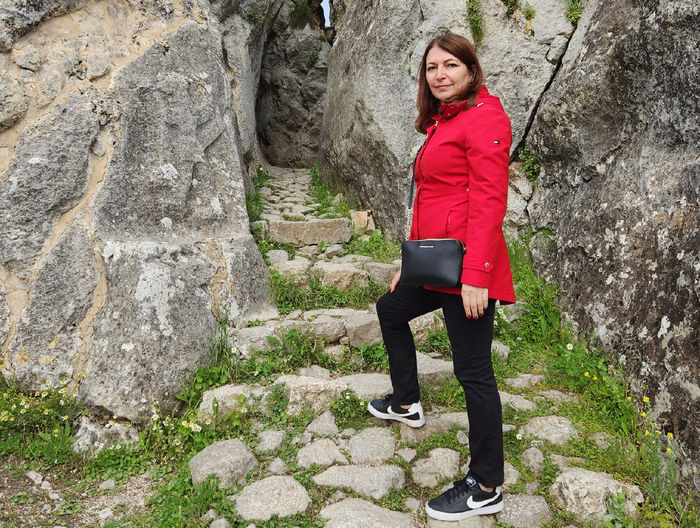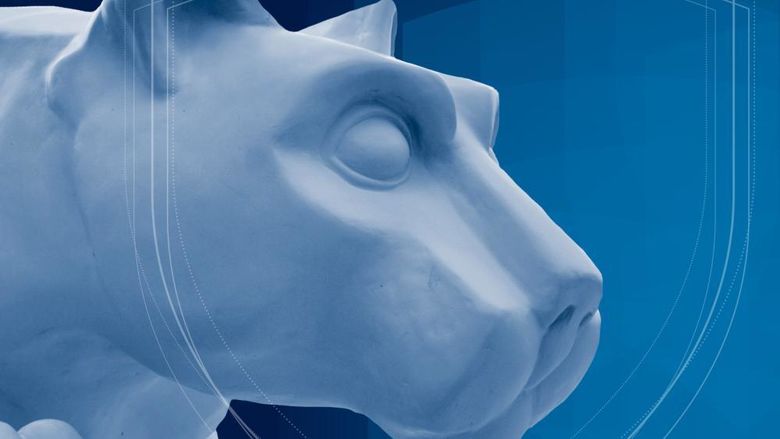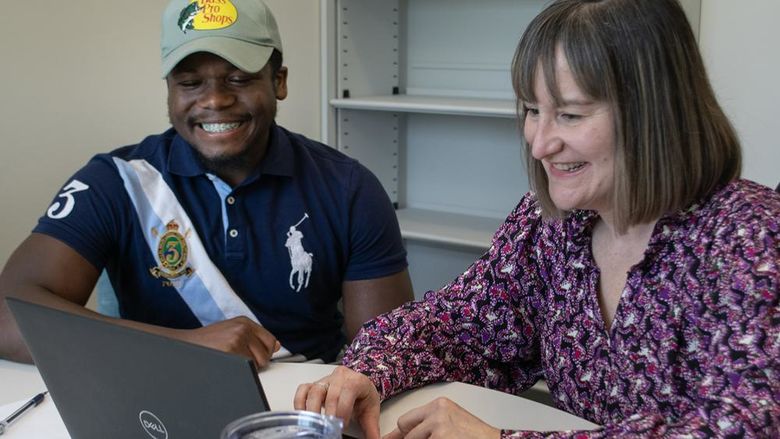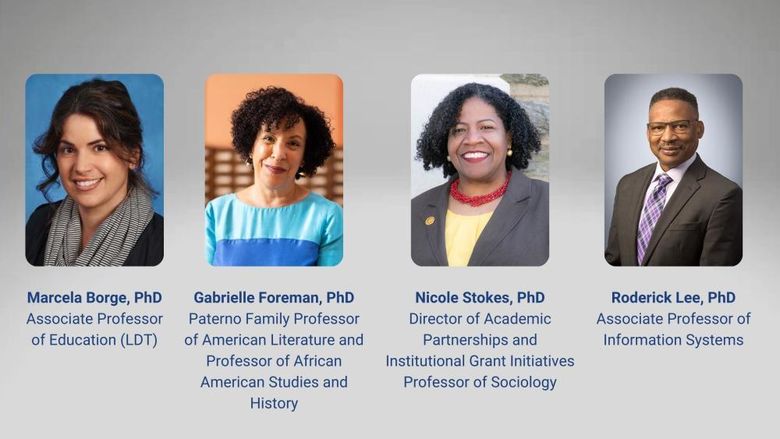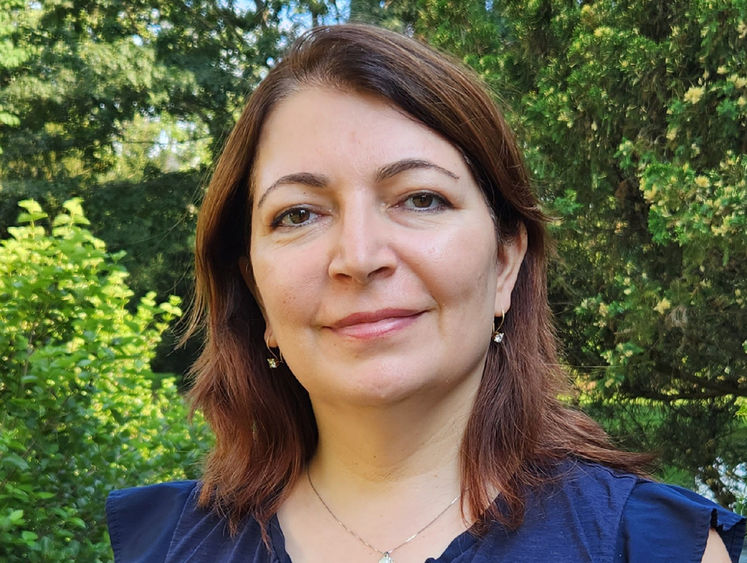
Senel Poyrazli
MIDDLETOWN, Pa. — Senel Poyrazli, professor of psychology and chair of the Division of Social Sciences and Psychology in the School of Behavioral Sciences and Education (BSED) at Penn State Harrisburg, went to Ankara, Turkey as a Fulbright Senior Scholar for the 2022-23 academic year. She was expecting to lecture at Bilkent University, conduct a research study related to Syrian refugees, present research at various conferences and lectures, and complete a book related to multicultural competency.
However, a devastating earthquake that hit the country and affected 11 states delayed her plans and caused her to pivot to using her clinical expertise as a counseling psychologist to assist her students and members of the community in the aftermath.
Fulbright awards are prestigious and competitive fellowships that provide opportunities for U.S. academics to continue their professional activities and build connections between nations.
“I chose to do my Fulbright in Turkey because of the large Syrian refugee population and because I wanted to write a book on multicultural competency for counselors-in-training and the population in Turkey, very much like the United States, is very rich in terms of different ethnicities, races, socioeconomic status groups,” Poyrazli said.
Multicultural competency helps us know more about people that are culturally different than us and to respect and appreciate them, said Poyrazli.
“People with higher levels of multicultural competency tend to be better bosses, better supervisors, better co-workers, better teachers, and better students, to name a few,” Poyrazli said.
Study of Syrian refugee college students and other research activities
Poyrazli has expertise related to psychological sociocultural and academic experiences of college students. She particularly studies the experiences of international students, as well as refugee and immigrant students.
This expertise is what drew her to Turkey for her Fulbright year, she said. Turkey has a large population of Syrian refugees due the Syrian civil war that began in 2011. These refugees came into the country 10 to 12 years ago and many who came as children are now college students.
Poyrazli said that research related to Syrian refugee students in general tends to focus on the K-12 population, while there is limited research on college students.
Poyrazli focused her two-part research study on Syrian refugee college students, examining their psychological and academic experiences in the classroom — treatment they received from their classmates, professors, and other staff/students on campus. She also looked at possible psychosocial experiences and microaggressions they experienced outside of the campus, in the community.
She said that an overall purpose of her research is to help campus personnel who provide programming — such as in international student offices or in faculty development offices — to use this information to help faculty, instructors, advisers and other staff understand how they could be engaging in microaggressions.
Some people engage in this behavior intentionally, she said, while some engage in these behaviors without realizing. Poyrazli found that the most common microaggression students experienced was related to speaking Arabic. When they spoke Arabic on campus or in the community, they faced “angry and disgusted looks," she said, so, as a coping strategy, students avoided speaking Arabic to avoid discrimination.
She added that students said they were labeled as “handout takers,” because until two years ago, they received a monthly allowance from the European Union for being college students. However, this funding was cut, and students were left to finance education on their own. “The public’s opinion, however, was still that they receive monetary help from the government. As a result, they reported experiencing a profound amount of financial stress and undertaking jobs that the Turkish citizens were not willing to accept," said Poyrazli.
Poyrazli added that the microaggressions and financial stress students faced in Turkey led some to seek a third country where their life circumstances would be better.
Poyrazli said the data she gathered will contribute to the development of outreach and training programs to help higher education institutions better serve all students.
She also began a book project on multicultural counseling and therapy for which she is a co-editor and contributing author.
“The project is helping me bring many experts together to continue to work within this area, while the outcome is this great book, it has also helped me further my studies on different populations,” she said.
Earthquake forces a pivot to clinical expertise
In the middle of her Fulbright activities, in the early morning of Feb. 6, Turkey was hit with a massive 7.8 magnitude earthquake.
Poyrazli was teaching at Bilkent University, a private university in Ankara, Turkey, headed into the second week of spring semester classes when the earthquake occurred.
“We all knew something horrible had happened, but because communications were cut off, not enough news was coming in. We were frozen,” Poyrazli said. “We were getting bits of news from social media about what was happening — collapsed buildings, people crying, not being able to get to their loved ones. There was chaos and confusion.”
Poyrazli and her students went to class to discuss clinical interview skills and techniques that morning and instead of following the syllabus, they discussed what they would do as practitioners following a natural disaster.
The undergraduate students she was teaching wanted to eventually be mental health practitioners and were eager to learn these skills, she said. This was the first time the course was being taught at that university.
Poyrazli said that she talked to the students about the psychoeducational programming they go through with those effected by trauma.
“People are confused in that state. We become their rational side as mental health practitioners,” she said. “We covered crisis intervention based on disasters. Sometimes when you are experiencing an event like that, you are confused yourself about what to do, but when you are taught [what to do], you now have a plan to follow, which brings your anxiety down.”
Another massive earthquake later in the day shut down parts of the country and ended in-person studies for two weeks as emergency, recovery and rebuilding efforts took place. This halted Poyrazli’s teaching and research activities, and after two weeks, her university went to a remote/hybrid schedule.
Her research activities were centered on state school students who hadn’t even started classes yet, a large part of the country had been affected by the earthquake physically, and many of those schools did not have the infrastructure to offer distance education. She was unable to talk to these students, said Poyrazli.
“My project was delayed,” she said. "All the gatekeepers were in place, we were going to send the survey out at the beginning of the spring semester, which for state schools meant beginning in February. My data was coming from state schools — where most Syrian students attended.”
The book Poyrazli was working on concurrent to her research was also delayed as many of the contributors were also affiliated with Turkey and therefore affected by the earthquake. “And me too,” Poyrazli said. “I think for a month I was not able to look at my research project or book because there was this whole chaos going on … for everybody.”
Poyrazli said that when her students finally came back to class, she could see that each one of them was going through another layer of trauma. She and her students weren’t directly affected by the earthquakes, but they were all hearing about people they knew who were killed or injured.
And while Poyrazli, who is a licensed counseling psychologist, had to be careful about how she helped her students because they were not her clients, she was able to make some interventions.
“Like meeting with the student as an adviser, just to make sure they were doing ok,” she said. “And if they were not doing ok, linking them with a professional in their community to offer some professional sessions.”
A family of four adults that Poyrazli knew lost their home in the earthquake, she said. For four days in the aftermath, they slept in their car. When conditions got more dangerous due to looting, they contacted her for help finding a place to stay in Ankara. In all of the chaos, she couldn’t find a place for them so the family stayed with Poyrazli and her 19-year-old daughter and Penn State student, Dilan Kucukaydin.
Kucukaydin, who is an engineering student, was completing a semester abroad at Bilkent. The family stayed with them for a little over a month. And Poyrazli said that Kucukaydin was a great help to her and the family during this time. “She had so much empathy for that family,” Poyrazli said.
Poyrazli added that while all members of the family presented with different levels of trauma, she was proud of how Kucukaydin interacted with the 90-year-old father of the family who had put his life savings into building the condo they lost. He seemed to be most affected by the earthquake and the loss.
“He would cry several times throughout the day,” she said. “My daughter witnessed all those traumatic responses and what she did was try to help them remember what their life was like before. It kind of helps you feel stronger.”
Kucukaydin would put on classic funny, family movies for the father and play backgammon with him. “She knew how to occupy their minds with something else so they would take a break from what was happening,” Poyrazli said.
Eventually, the family found a place to live. They kept in touch with Poyrazli through phone calls and visits. “It’s important at the beginning to do a lot of visits until they get used to the environment,” she said.
Poyrazli also assisted some U.S. students involved in the Fulbright English teaching assistance program, which places people with undergraduate degrees abroad to assist professors with helping students learn English. Many of those U.S. students were in a city where the earthquake was felt. Knowing that she was a counseling psychologist, Fulbright Commission officials asked Poyrazli if she would hold a psychoeducational meeting with them to see how they were coping and help assess their mental health.
“I also talked to them about prevention methods, like the buddy system, keeping an eye on each other and their own symptoms,” she said. “I also put together a ‘teaching strategies after a disaster’ sheet with teaching tips and sent it to them.”
Poyrazli said that when she accepted the Fulbright, she thought it would be about her research and teaching, but she was happy that her clinical expertise could help those in need.
What’s next
“As a multicultural competency educator, my Fulbright year helped me advance in my professional development,” she said. “I will be utilizing this additional knowledge in teaching my courses and in my writings.”
Along with writing more books and papers on the research gleaned during her year in Turkey, Poyrazli said that she is going to continue the goals of the Fulbright organization — building connections between two nations.
“While I was in Turkey, I saw that there is great need for additional training of faculty members and there is government assistance to send them abroad as visiting scholars to U.S. institutions, just like what Fulbright does,” she said. Poyrazli has already being assisting in that area, going around the country giving seminars on how to make the process happen and how to communicate with American professors. She said she wants to continue to facilitate those relationships.
She explained that her time in Turkey helped her develop additional professional connections in her field. She began new research projects, including one working with doctoral students training to be academicians within Turkey, who are also studying international and Syrian refugee students. She will soon begin another research project with a professor teaching in the counseling program at a university in Turkey.
Poyrazli said she is eager to apply for another Fulbright in six years, when she is eligible again. She has set her sights on Cyprus or Eastern European countries, where she can study an array of different ethnic and racial groups.
“There is so much we can offer each other as nations, as universities and institutions in different parts of the world and there is so much we can learn from each other, if the connection and communication somehow gets facilitated,” she said. “The Fulbright definitely helps with that, and it should continue.”
